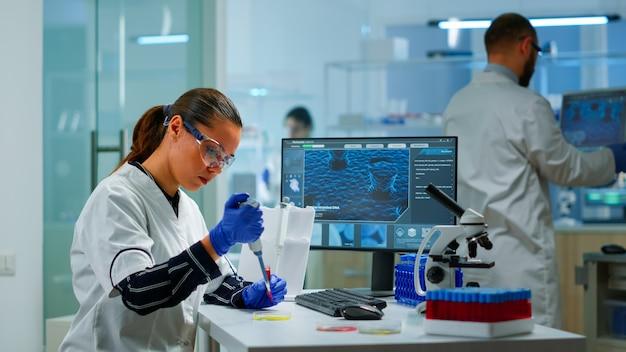Ensuring Excellence: The Role of Quality Assurance in Pharmaceuticals

The pharmaceutical industry is one of the most regulated sectors globally, primarily due to its direct impact on human health. Quality Assurance (QA) in pharmaceuticals is a critical aspect that ensures that the products released to the market are safe, effective, and of the highest quality. This blog delves into the importance, processes, and future trends of Quality Assurance in the pharmaceutical industry.
The Importance of Quality Assurance in Pharmaceuticals
Quality Assurance in pharmaceuticals encompasses all the systematic activities and processes that ensure the quality of products. It is crucial for several reasons:
Patient Safety: The foremost priority of QA is to ensure that pharmaceutical products are safe for consumption. This involves rigorous testing and validation processes to identify any potential risks.
Regulatory Compliance: The pharmaceutical industry is governed by stringent regulations set by bodies like the FDA (Food and Drug Administration) and EMA (European Medicines Agency). QA ensures that companies comply with these regulations, avoiding legal and financial repercussions.
Product Efficacy: QA ensures that the drugs produced are effective and meet the therapeutic claims made by the manufacturer. This is vital for maintaining the trust of healthcare professionals and patients.
Reputation and Trust: Consistently delivering high-quality products helps build and maintain a company’s reputation, fostering trust among consumers and stakeholders.
Key Processes in Pharmaceutical Quality Assurance
QA in pharmaceuticals involves a range of processes and activities designed to maintain and improve quality at every stage of production. Some of the key processes include:
Good Manufacturing Practices (GMP): GMP guidelines are fundamental to QA. They cover all aspects of production, from raw materials to hygiene of staff, ensuring that products are consistently produced and controlled according to quality standards.
Quality Control (QC): QC is a subset of QA focused on the operational techniques and activities used to fulfill quality requirements. This includes testing and inspecting raw materials, intermediate products, and finished products.
Documentation and Record-Keeping: Accurate documentation is crucial in QA. It provides a detailed record of every step in the production process, ensuring traceability and accountability. This is essential for audits and inspections.
Validation and Qualification: These processes confirm that systems and processes used in production meet predefined standards. This includes validating equipment, processes, and software to ensure they operate correctly and produce consistent results.
Risk Management: Identifying, assessing, and controlling risks throughout the product lifecycle is a vital part of QA. This helps in preemptively addressing potential quality issues.
Future Trends in Pharmaceutical Quality Assurance
The landscape of pharmaceutical QA is continually evolving, driven by technological advancements and regulatory changes. Some future trends include:
Digital Transformation: The integration of digital technologies like AI, blockchain, and IoT is revolutionizing QA. These technologies enhance traceability, streamline processes, and improve data accuracy and integrity.
Continuous Manufacturing: Unlike traditional batch manufacturing, continuous manufacturing allows for a more consistent and controlled production process. This reduces the risk of human error and enhances product quality.
Personalized Medicine: As personalized medicine becomes more prevalent, QA processes will need to adapt to ensure the quality and efficacy of customized treatments.
Regulatory Evolution: As regulations continue to evolve, QA processes must be agile and adaptable. This includes staying abreast of changes and ensuring compliance through proactive measures.
Sustainability and Environmental Responsibility: The pharmaceutical industry is increasingly focusing on sustainability. QA processes are being adapted to ensure environmentally friendly practices without compromising product quality.
Conclusion
Quality Assurance is the backbone of the pharmaceutical industry, ensuring that products are safe, effective, and of high quality. As the industry evolves, so too must QA processes, embracing new technologies and adapting to regulatory changes. By prioritizing QA, pharmaceutical companies can maintain trust, comply with regulations, and ultimately protect patient health.

Comments
Post a Comment